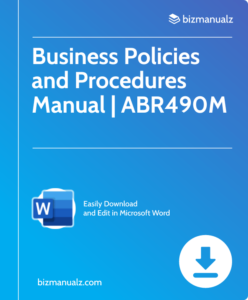How to Create a Business Budget

Developing a business budget is essential for the prosperity of any organization. It permits you to plan and distribute assets productively, guaranteeing that your costs coordinate with your income objectives. By following a systematic budgeting process, organizations can settle on educated monetary choices and explore unsure financial occasions with certainty. How to create a business budget.
Creating a Business Budget
To begin creating a business budget, assemble all applicable financial information such as sales information, creation costs, compensations, and overhead costs. Thoroughly examine this information to pick up understanding into your current financial circumstance and recognize zones where you can cut costs or contribute more strategically.
At that point, set obvious and achievable financial objectives for your business. These objectives should be explicit, quantifiable, attainable, pertinent, and time-bound (SMART). Whether you intend to build income by a specific rate or decrease operational costs, these objectives will fill in as controlling standards all through the budgeting cycle.
After you have built up your objectives, make a point by point rundown of all anticipated salary and costs for the impending period. This should incorporate fixed costs, for example, rent and utilities just as variable costs, for example, promoting costs or worker rewards. Remember to consider any potential vacillations in income or unforeseen uses that may emerge.
With all the vital information close by, it’s an ideal opportunity to crunch the numbers! Utilize spreadsheet programming or accounting instruments to arrange your budget in a reasonable and simple to-comprehend design. This will permit you to follow actual execution against projected figures on a continuous basis.
Presently, here’s an empowering genuine story that features the significance of budgeting in business:
A little family-possessed bakery in the city battled to keep its entryways open in the midst of rising rivalry from bigger chain stores. Confronted with declining deals and mounting obligations, the bakery chose to investigate their methodology to budgeting. They cautiously broke down their financial records and distinguished various inefficiencies inside their tasks.
By executing a modified budget plan that accentuated cost-cutting measures without trading off item quality, the bakery had the option to diminish overhead costs fundamentally. They additionally utilized their budget to allocate assets for focused on showcasing efforts and item advancements, drawing in new clients and expanding deals.
Inside a year, the bakery saw a noteworthy turnaround. They figured out how to not just take care of their obligations yet in addition extend their business by opening new branches in close by towns. This accomplishment story highlights how making and clinging to an all around arranged budget can be a distinct advantage for little organizations battling to endure in serious markets.
Why is a Business Budget Important?
A business budget is essential. It helps plan and manage financial resources. Tracking income and expenses, it helps make informed decisions. Without a budget, expenses may be misallocated leading to instability or failure.
It helps set realistic goals and measure progress. Also, it can identify any potential cash flow problems in the future. This way, proactive measures can be taken to address them and reduce their impact.
A well-prepared budget gives a clear picture of financial health. It can help identify areas to reduce costs or reallocate resources for more profit. This knowledge helps make strategic decisions to improve business performance.
Plus, a budget is important for getting funding from investors or lenders. Having one shows the ability to manage finances and builds trust with potential partners. It demonstrates an understanding of financial needs and how to use funds effectively.
Pro Tip: Review and revise your budget as needed. Adapting is the key to its success in guiding financial decisions.
Steps to Create a Business Budget
Creating a budget for business is essential for success and growth. It lets you plan and use resources carefully, track expenses, and make informed financial decisions. Here’s a 3-step guide to create a business budget:
- Recognize your income sources: Work out all possible revenue sources for your business. This may involve sales, investments, loans, and grants. Put down these sources in an orderly way to understand your income streams clearly.
- Work out fixed and variable costs: Categorize your expenses into fixed and variable costs. Fixed costs are the ones that stay the same regardless of production or sales, like rent, utilities, and salaries. Variable costs are linked to your level of activity or production, such as raw materials and commissions. Analyze past financial data to estimate these costs precisely.
- Set attainable financial goals: Based on past data and predictions, set achievable goals for your business. These goals could include growing revenue by a certain percentage or reducing costs with cost-saving measures. Make sure these goals are detailed, measurable, feasible, relevant, and have a deadline (SMART).
It’s important to review and modify your budget as circumstances change to keep track with your financial objectives.
Also, keep in mind that making a comprehensive business budget needs thorough thinking about factors like market conditions, competition, industry trends, customer preferences, and economic aspects.
Studies have found that organizations that make and keep to budgets are more likely to reach their financial targets successfully (Source: Harvard Business Review).
Tools and Resources for Creating a Business Budget
Creating a business budget? Essential to have the right tools and resources! Utilize these tools to manage finances and make informed decisions for business financial health.
| Tool/Resource | Description |
|---|---|
| Accounting Software | Tracks income/expenses, generates financial reports, and more |
| Spreadsheet | Detailed record-keeping, calculations, data analysis |
| Budgeting Apps | Mobile access to budgeting features for real-time monitoring |
| Financial Advisors | Guidance on budgeting, tax strategies, investments |
Unique resources too! Online courses/workshops for valuable insights into financial management. Network with other business owners or join industry-specific forums for advice and support from experienced professionals.
Forbes magazine: Businesses that regularly update/review budgets are more likely to achieve financial goals. Stay proactive – use right tools and seek relevant resources.
Best Practices for Maintaining a Business Budget
For any organization to be financially successful, maintaining a business budget is essential. It assists with tracking and controlling costs, forecasting future needs, and making wise business decisions. Here are the top tips to keep in mind for managing your budget:
- Regularly review & update: A static budget can soon become obsolete and ineffective. Make sure to check and update your budget regularly to reflect any changes in expenses, income, or business goals.
- Categorize expenses: Organizing expenses into groups makes it simpler to see where your money goes. This helps you to recognize areas where you can reduce costs or reallocate resources more efficiently.
- Create contingency funds: Unexpected expenses can come up anytime, so it is important to set aside money for possible emergencies or opportunities. This will give stability & flexibility in your budgeting process.
- Set realistic goals: Aim high but avoid setting unrealistic financial goals which can lead to disappointment and demotivation. Set achievable objectives based on past performance & market trends.
- Monitor cash flow: Keeping track of cash flow is essential for having a strong financial position. Keep track of incoming & outgoing cash regularly to make sure you have enough liquidity for day-to-day operations and long-term investments.
- Seek professional advice: Managing a budget can be complex, especially for small businesses with limited resources. If you are having difficulty, don’t hesitate to get help from financial advisors or accountants who specialize in business finances.
In addition, think about introducing tools & software that can make budgeting easier, such as using accounting software or employing a virtual bookkeeper.
To guarantee the success of your business and avoid unnecessary stress, make managing a well-planned and frequently updated budget a priority. By following these best practices, you can manage your finances effectively and make decisions that will support the growth of your business.
Now is the time to take charge of your business’s financial future. Don’t let the fear of not taking advantage of potential opportunities or facing financial issues hold you back. Begin utilizing these best practices for maintaining a business budget now and secure the success and stability of your organization.
Create a Business Budget
Making a business budget is essential for any firm. By planning and distributing resources carefully, businesses can maximize their profit and cut out unnecessary costs. We discussed steps to create a budget, like analyzing income and expenses, setting financial goals, and monitoring cash flow. Also, we highlighted the need to review and modify the budget regularly for accuracy and effectiveness. Thus, businesses can gain financial stability and make smart decisions for growth.
Additionally, key members from distinct departments should be involved in budget creation for comprehensive input and support. This shared approach allows better transparency and responsibility within the organization.
Another feature of budgeting is assessing possible risks and having a contingency plan. Although it’s impossible to predict every difficulty, having a backup plan helps counter sudden issues that could affect financial steadiness.
Pro Tip: Utilize budgeting software or tools to automate and streamline the process. These tools provide real-time insights into financial data, making it easier to track expenses and identify cost-cutting or investment chances efficiently.
Frequently Asked Questions
 1. Why is it important to create a business budget?
1. Why is it important to create a business budget?
Creating a business budget is important as it helps in managing your finances effectively. It allows you to set financial goals, allocate resources, track expenses, and make informed decisions to ensure the financial health and growth of your business.
2. What are the key steps to creating a business budget?
The key steps to creating a business budget are:
- Identify and categorize your expenses
- Estimate your revenue and sales projections
- Set financial goals
- Create a budget spreadsheet or use budgeting software
- Allocate funds to various expense categories
- Track and monitor your budget regularly
3. How often should I review and update my business budget?
It is recommended to review and update your business budget on a regular basis. Ideally, you should review it monthly to ensure it aligns with your business’s financial goals and the changing market conditions. However, major changes such as new product launches, expansions, or economic shifts may require more frequent updates.
4. What are some common budgeting mistakes to avoid?
Some common budgeting mistakes to avoid include:
- Underestimating expenses or overestimating revenue
- Not accounting for unexpected costs or emergencies
- Not regularly tracking and comparing actual expenses with the budget
- Ignoring industry benchmarks or market trends
- Not involving key stakeholders in the budgeting process
5. How can I ensure my budget is realistic?
To ensure your budget is realistic:
- Gather accurate financial data from past periods
- Consider industry benchmarks and market trends
- Involve relevant stakeholders to gain diverse perspectives
- Review and adjust your budget based on actual performance and feedback
- Seek the assistance of a financial advisor or accountant if needed
6. What are the benefits of using budgeting software?
Using budgeting software can provide several benefits such as:
- Automated calculations and formulas reduce human error
- Real-time tracking and updates for better financial control
- Easy organization and categorization of expenses
- Graphical representation of budget data for visual analysis
- Integration with other financial tools for seamless management
















Leave a Reply